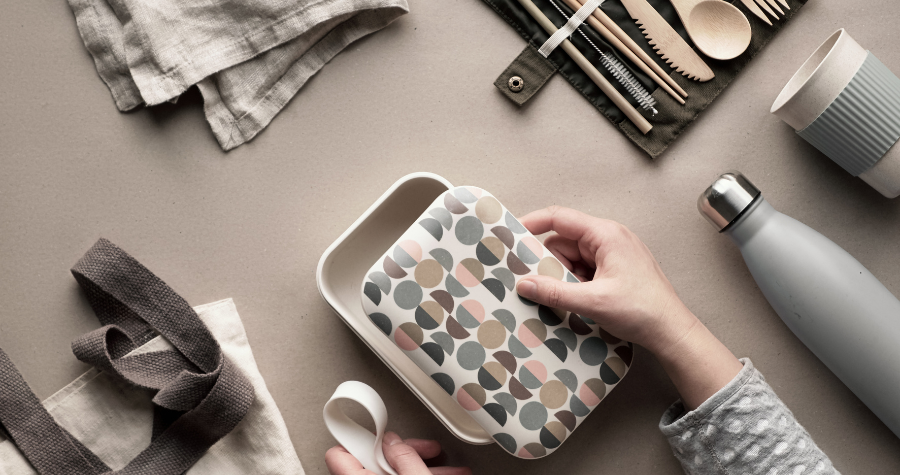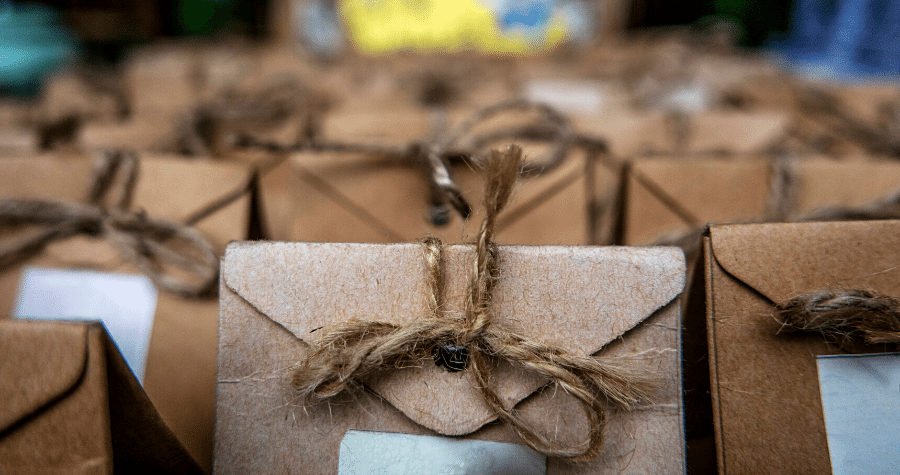Your ultimate guide to sustainable merchandise
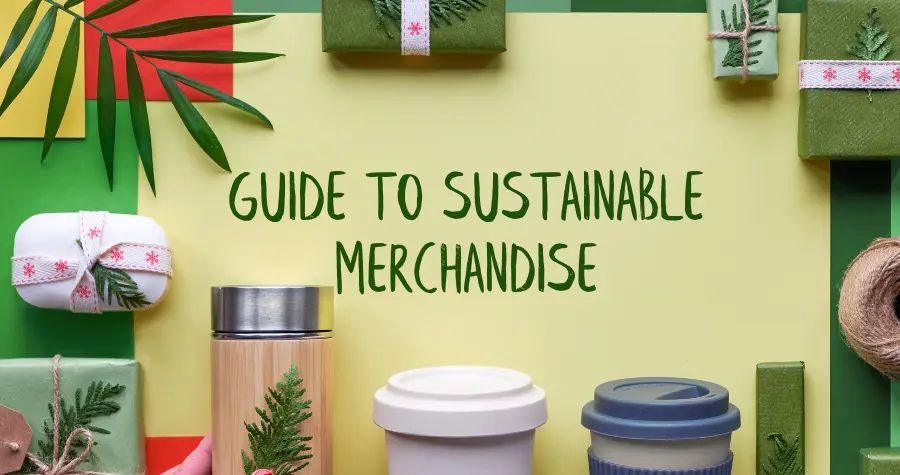
It can be hard to navigate what truly is sustainable when it comes to promotional merchandise.
- What does it actually mean when a product is sustainable? Reusable? Recyclable?
- Does it matter where a product comes from?
- What does RPET really mean?
That’s why we wanted to create a simple (but comprehensive) guide that you can keep coming back to again and again for peace of mind that the merchandise you’re choosing is truly the best for your brand and the planet.
We want you to be a leader in an eco-revolution shaking product media to its core!
Don’t forget: you can save this post to come back to it whenever you need some sustainable inspiration.
For more great sustainable merchandise, we’ve got a whole range of green brandable goodies for you to choose from.
Plus, if you’re looking for some ethical products with an awesome story behind them, why not download our B Corp & Social Enterprises brochure? It’s full of handpicked eco-conscious brands that we know you’re going to love! 
How can merchandise be sustainable?
It’s a common misconception that working with product media means we can’t be sustainable.
Well, we’re here to prove you WRONG (and we’re not even sorry about it!).
Read more: 2023’s top trending sustainable products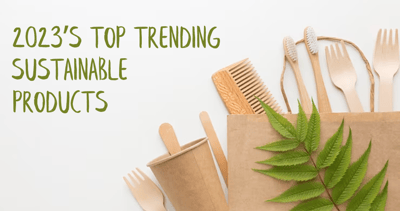
What does sustainability mean?
There are a lot of different ways that an item can be sustainable. To be truly sustainable, the production of the item must be “a method of harvesting or using a resource so that the resource is not depleted or permanently damaged”, according to Merriam-Webster.
In essence, the production of the product cannot harm the resources used.
In product media, in order to consider an item ‘sustainable’, you not only need to consider the production of the product but also:
- What are its end-of-life capabilities?
- What’s it made from?
- Will it cause harm once discarded?
- What’s its life longevity?
How would you define sustainability?
Read more: 35 super simple sustainable swaps you can make at home

Your ultimate guide to sustainable merchandise
There are a lot of product types to choose from, from reusable to recyclable, to even growable goodies!
However, even though all product types below are eco-friendly, some are more sustainable than others.
Read more: What's greenwashing?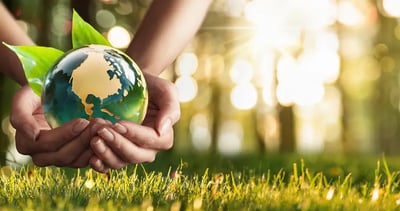
It’s super important that you choose what works best for your brand and campaign and our experts will happily help figure out what’s right for your brand.
Read more: 14 sustainable giveaways to get REALLY excited about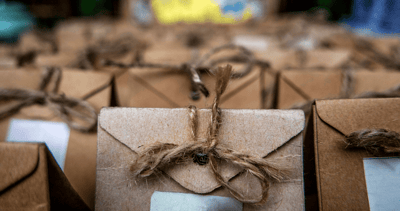
Product types
1. Reusable promotional items
Reusable items are probably the greenest merch around, as they will discourage single-use and (hopefully) never end up in landfill waste.
2. Recyclable media
We’re not going to pretend that all your branded merch will be kept forever. Sure, some will, and that’s great! But others will have fulfilled their purpose and will come to the end of their life sooner or later. That’s why products that can be easily recycled in curbside recycling are a must.
3. Repurposed merchandise
Adding dates or event-specific text to your products is a surefire way to reduce their ability to be repurposed. That’s because once that date has passed, your items and branding are no longer relevant.
With long-lasting promotional products, they’ll carry on spreading the word about your brand for months or years after their initial purchase, so it’s an environmentally-friendly tactic to make sure your merch can be repurposed.
4. Recycled products
A great way to make your merchandise more sustainable is to choose items that are made from recycled materials. Offsetting this usual useless waste by producing something new is a lifesaver when it comes to the planet. -1.webp?width=400&height=200&name=blog%20images%20(7)-1.webp)
5. Compostable swag
At the end of its life, if your merchandise can degrade naturally in the ground without harming the environment, then it’s considered compostable. This is ideal for reducing your household waste plus it won’t add anything to landfill.
6. Growable goodies
Great for publicising your brand’s eco credentials, growable goodies are a unique and eco-friendly way to get your clients involved with your brand..png?width=400&height=211&name=insights.fluidbranding.comhubfsblog%20headers%202023%20(1).png)
The product
The materials your merchandise is made out of can determine how eco-friendly the product is.
It all depends on:
- The product’s manufacturing process
- The availability of the material
- The time it takes to replace the material once used.
- The harm this material has on the planet.
And you’re in luck! We’ve listed below our absolute favourite sustainable and eco-friendly materials that are commonly used in creating your wonderful promotional merchandise. This way, we hope you can refer back to this list to feel more confident about your future product choices.
Read more: Are we too late to stop the climate crisis?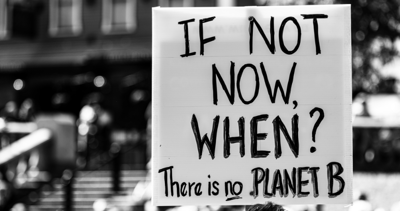
Sustainable materials
1. Cork
Cork is made from the bark of the self-regenerating cork oak tree. It’s ranked among the most durable organic materials available. The cork industry is regarded as one of the most environmentally friendly industries around, and cork is 100% natural and biodegradable.

2. Bamboo
Bamboo is one of the fastest-growing plants (grass) that we can make things out of! It’s great because it can replenish itself within a year with minimum water needs and without the need for fertilisers to boost its growth. Also, bamboo is naturally pest-resistant so there’s no need to use pesticides.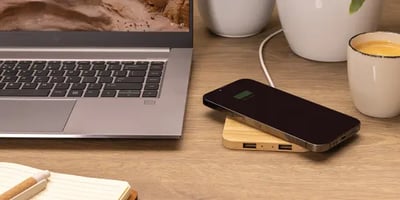
3. Recycled cotton
Recycled cotton is a great alternative to organic cotton as it’s made from cutting waste. This waste is collected from different factories, different fabrics, and different productions and repurposed so that it doesn’t end up in landfills.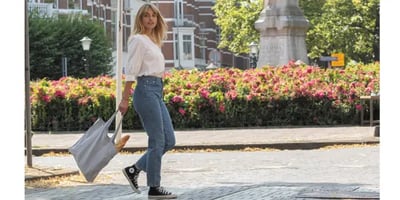
4. Organic cotton
Organic cotton is naturally grown without the use of any pesticides, herbicides, fertilizers or any other chemical.
5. Jute
Jute is a long, soft and shiny bast fibre made from the jute plant. It can be spun into strong threads and, after cotton, it’s the second most used natural fibre for textiles in the world. Because jute is a completely natural plant-based fibre, it is biodegradable and will leave zero impact on the environment.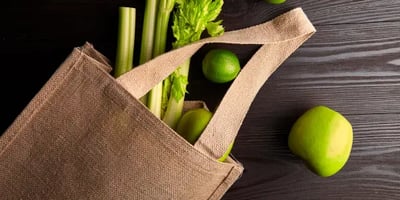
6. Hemp
Hemp is one of the oldest and most eco-friendly textile fabrics. It’s made from fibres of the fast-growing cannabis plant that’s naturally pest resistant.
7. RPET
PET is the most common type of plastic, mostly used for packaging and disposable bottles/containers, and unfortunately, a large part of the solid waste in the world is attributed to PET. By using recycled PET (RPET) instead to make something new, there’s a reduced environmental impact as no new PET needs to be produced. Yay!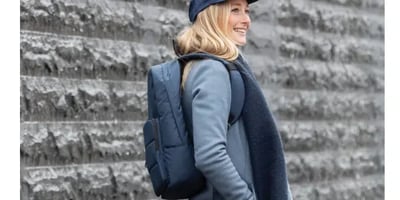
8. ABS plastic
ABS plastic (Acrylonitrile-butadiene-styrene) is 100% recyclable. The process of recycling is simple and similar to the recycling method of PET. ABS can be recycled 2 or more times.
9. Recycled glass
Glass is a sustainable and budget-friendly material. It’s easily reusable, easy to clean and super long-lasting! 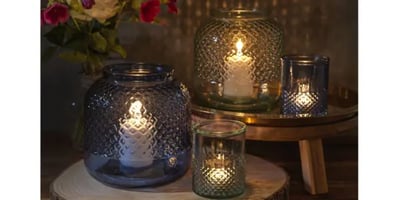
Don’t forget about product packaging!
Make sure to double-check how your product is packaged, too.
Don’t go for products that come with lots of protective, wasteful packaging, for example.
Think about how best to optimise how your merchandise is gift-wrapped to make it wholly sustainable, recyclable, and eco-friendly.
Pro-tip: our team will always try their best to minimise any unnecessary product packaging for you.
Product lifecycle considerations
Finally, you need to consider how your product was made and how to dispose of it safely.
- How can you be sure your item is 100% what it claims to be?
- How can you ensure its end-of-life scenario is as eco-friendly and safe as possible?
- What’s the overall environmental impact of choosing that particular piece of merchandise?
Product traceability
From creation to landfill, it all matters to us!
We’re here to help you express your brand through the best traceable, trustworthy sustainable products. We love that the promotional merchandise industry is changing for the better, with products becoming more honest than ever.
We’ve partnered with Aware™ for some of our products to ensure that all claims made are backed up with facts.
Aware™ is a traceability platform that allows you to track and validate the data linked to your products. From origin to you, you’ll see your item’s entire journey.
And it’s easy and accessible to access this data. All you have to do is scan the QR code on your product, and you’ll be able to access the Aware™ Virtual ID.
This will show you all the information that’s ever been associated with your product.
Read more: Isn’t it time clothing was honest? Introducing Iqoniq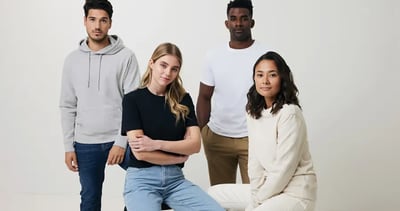
End-of-life consideration
What will happen to your product when it comes to the end of its life? Will it end up in a landfill, or can it be recycled, composted or reused?
Considering the end-of-life journey of your product will determine what’s best for your brand.
Read more: Here’s why we love Circular & Co. -1.png?width=400&height=211&name=Blog%20%20(6)-1.png)
Carbon footprint
We’re consistently thinking about how our actions will impact our future. Your products won’t just be around for a moment, and we genuinely care about their long-term footprint.
In July 2020, we announced our commitment to becoming Carbon Net Zero by 2030, alongside over 700 other Certified B Corporations, and considering the carbon footprint of your product has never been more important!
When it comes to your branded product’s carbon footprint, you need to consider:
- Where the product is made in conjunction with where you need it delivered
- Are the materials for your product shipped in bulk to the factory?
- Where are all the individual elements sourced?
The product’s brand ethos
Products with a positive impact
Helping people and the planet with your merch has never been so easy!
We work with several specially selected social enterprises that are changing the world for the better, as well as other fellow B Corps. If you’re looking for products that’ll knock your sustainable socks off:
Check out: Our Products with a Positive Impact range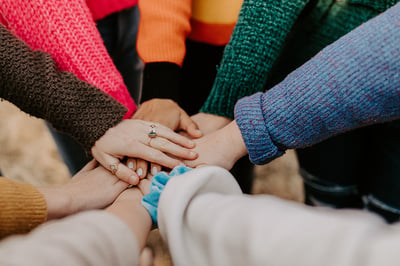
Take a look at just some of the amazing companies that we currently work with below and get your brand involved in creating a real positive impact.
Circular design
Put simply, circular design is the future of everything.
This is good, because our linear economy model of take, make, and waste, is outdated. As a society, we cannot keep creating so much unusable waste. The solution? Circular economy.
Circular design is about creating a product whose materials can be reused or 100% recycled. The item’s lifecycle no longer has a beginning, middle, and end - there’s just one, continuous, circular concept. It’s about being restorative and regenerative.
Read more: What is circular design?%20(1)-1.webp?width=400&height=211&name=Blog%20Header%20(4)%20(1)-1.webp)
Going beyond merchandise
Making sustainable swaps at home and in the office has never been so easy, and we’ve got everything you need to get started today.
That’s because we’re the future of sustainable product media.
We believe that sustainability is the key to a brighter future. And we want to be trailblazers in our industry, committed to making responsible choices in everything we do.
Our pledge to you is simple: we want to inform and empower you to make better product choices that have a real positive brand impact.
Be bold, be creative, B Corp, be brilliant!
Are you ready to go beyond with us?

